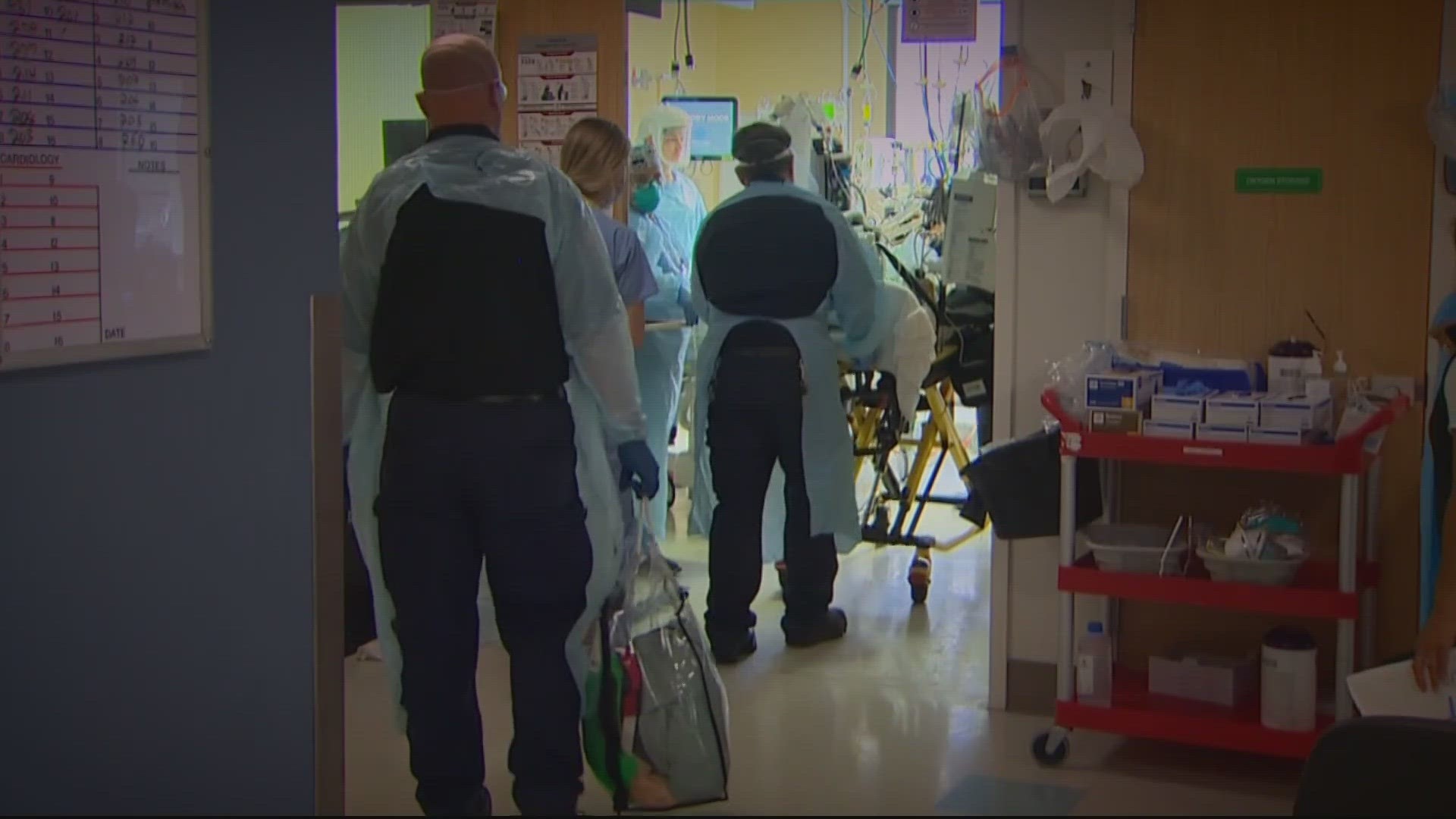SALEM, Ore. — Multiple health care worker unions and the Oregon Association of Hospitals and Health Systems (OAHHS) say they've reached an agreement on a slate of proposed legislation to address the state's ongoing health care staffing crisis.
The central piece of the agreement is House Bill 2697, which would require hospitals to develop staffing plans. The bill has gone through one hearing and one work session with the House Behavioral Health and Health Care Committee, with another work session scheduled for next week.
Health care workers and hospital administrators have been at odds over the bill until now; nurses who testified in Salem earlier this month said it would help combat widespread burnout, but OAHHS officials and other opponents argued that it would create new difficulties for hospitals without solving the problem.
In a joint news release Tuesday, OAHHS, the Oregon Nurses Association, the Oregon Federation of Nurses and Health Professionals and the Service Employees International Union Local 49 said they had agreed on a set of amendments that would allow all four groups to get on board with the bill.
"We negotiated for many, many, many hours to try to build in flexibility so that the hospitals feel that they can operate in a meaningful way under the law, and so that nurses and other healthcare workers feel that they have that engagement, that there’s some baselines set for safe staffing and that there is a voice for everybody working in the hospital on how their staffing will be set up," said Matt Calzia, a registered nurse who works for ONA.
The groups began negotiating at the urging of Rep. Rob Nosse, one of HB 2697's chief sponsors, according to the news release. The groups said they would share their proposed amendments with the Behavioral Health and Health Care Committee next week.
The amended bill would establish nurse-to-patient ratios in many hospital settings, along with committees for providers in additional hospital settings to create standards for improving staffing, according to the news release, although it does not specify exactly how the amended bill would differ from earlier versions.
"Nurses are educated to provide a certain level of care. We know what the patients need, and so do all of the other healthcare workers out there," Calzia said. "Everybody knows they have this level of education and when the resources are such that we're not able to provide that care, we feel demoralized. I think as we start to set a standard and we start to build from there, we can get to a place where we're delivering that high quality care."
The groups endorsed two additional pieces of legislation as part of the agreement: Senate Bill 1079, which aims to improve hospital capacity by addressing "discharge barriers," and House Bill 2742, which would exempt some workforce-related costs from the state's health care cost growth target.
The agreement also calls for roughly $40 million in investments for health care professional training opportunities, described in a news release from the groups as "building a pipeline of health care workers."

